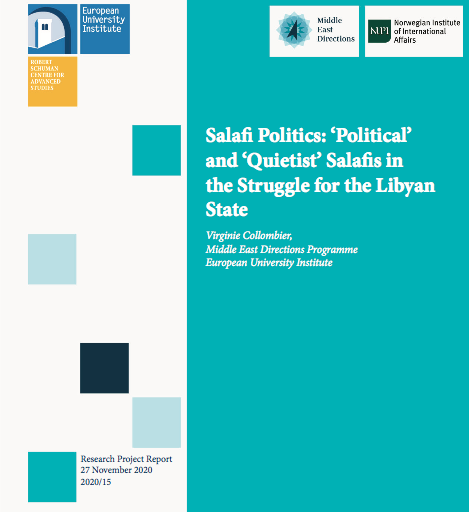MEDirections is delighted to share the latest research project report by Virginie Collombier, Scientific Coordinator of the MEDirections Libya Initiative, in collaboration with the Norwegian Institute of International Affairs (NUPI) in the frame of the Hybrid Pathways to Resistance in the Islamic World project (HYRES), that studies the interaction between Islamist movements and the state in the cases of Iraq, Lebanon, Libya and Mali.

Academic literature has tended to divide Salafis into three main categories – jihadi, political and quietist – distinguished by ideological and methodological differences, notably pertaining to the Salafi groups’ varying relationships with the state and political authority and their use of violence.
What happens, then, when state institutions collapse, when there is no state authority or when state authority s highly contested between different groups, none of which is able to definitively assert itself over the others? In a context of political upheaval and armed conflict, how do Salafis relate to the state and to‘politics’?
Focusing on two currents, ‘political’ Salafism, represented by leading figures in the former Libyan Islamic Fighting Group (LIFG), and ‘quietist’ Salafism, represented by the so-called ‘Madkhali’ Salafis, this paper analyses the two currents’ relationships with ‘politics’ and state institutions in times of turmoil.



